On July 23, George Mason University President Gregory Washington announced the creation of a Task Force on Anti-Racism and Inclusive Excellence.
"My vision is nothing short of establishing George Mason University as a national exemplar of anti-racism and inclusive excellence in action," President Washington said.
At the Jimmy and Rosalynn Carter School for Peace and Conflict Resolution, we were honored to have been recognized as playing an integral part in helping to realize this vision of a truly anti-racist and inclusive approach to academic excellence. It is a responsibility that we do not take lightly.
At the end of May, we released a statement condemning white supremacy and committing to an ethos of research, teaching, and practice that prioritizes anti-racism and opposes oppression. As a field, peace and conflict studies has long been a place of deep discussion on the dynamics of power, marginalization, and dehumanization. Like all academic fields, it has also constantly had to reckon with the myriad ways in which the field's approach to scholarship and practice can reify such dynamics.
As a school, a commitment to anti-racism will mean, at least in part, engaging in reflection on the work that we must do to dismantle entrenched systems of white supremacy; listening to our students, faculty, alumni, and partners to understand how they experience these systems; and constantly renewing our dedication to bringing about justice and equity in both word and deed.
The Carter School is also engaging with local authorities like Arlington County in Northern Virginia on a series of restorative justice and police reform processes. Discussions with Fairfax City regarding partnerships on similar challenges are also ongoing. Overall, our goal is to share the School’s expertise on conflict analysis, resolution, and transformation with the communities around us and beyond to support them in building more peaceful societies.
Back in our own community, we have asked our faculty members to contribute resources from both their work and the broader field of peace and conflict studies to broaden our school's conversation about racism, white supremacy, and social justice. We invite you to engage with the below resources. As you do, if you have any questions, concerns, or feedback on how the Carter School can better engage in the work of anti-racism, please reach out to me at tcsdean@gmu.edu.
Alpaslan Özerdem
Dean of the Carter School
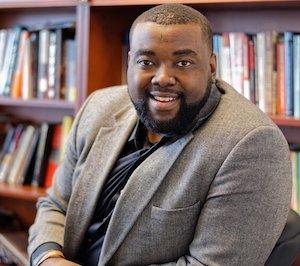
Dr. Charles Chavis (Photo by Ryan Chiu)
Dr. Charles L. Chavis, Jr.
Assistant Professor of Conflict Resolution and History;
Founder and Director, John Mitchell, Jr. Program for History, Justice, and Race
Dr. Chavis's statement on white supremacy and anti-Black racism:
"Noted civil rights leader Ella Baker's prophetic words ring true to this day: 'Until the killing of black men, black mothers' sons, becomes as important to the rest of the country as the killing of a white mother's son, we who believe in freedom cannot rest until this happens.'
I echo Baker's words and want to be clear that well before 'COVID-19,' racism was America's and the world's original pandemic. The shock and disgust that white people are expressing during this time are important, but we pray that this disgust remains when the cameras leave and the dust settles as Black and Brown communities continue to fight against the less visible forms of racism that are at the root of America's infantile democracy. The Black and Brown people of this country can no longer wait. America can no longer wait."
Resources from Dr. Charles Chavis
John Mitchell, Jr. Program for History, Justice, and Race
The John Mitchell, Jr. Program for History, Justice, and Race is a program based at the Center for Peacemaking Practice at the Carter School that synthesizes critical historiography, narrative change approaches, and conflict resolution into scholarship and practice that complicates historical memory, builds peace, and promotes racial justice in the United States.
Check out the following resources from the Mitchell Program:
- "Mondays in June" Virtual Town Hall series on race, peace, and justice (co-organized with Busboys and Poets and the Maryland Lynching Memorial Project)
- Resource and reading guides on 1) the legacy of racial terror in America, 2) racism and anti-racism, and 3) social justice activism
- Freedoms Plow — An online publication of the Mitchell Program that explores history, race, and justice through essays, poetry, short fiction, short films, and artwork
Anti-Racism Statement for Syllabi
The Mitchell Program has developed a sample anti-racism statement that can be incorporated into course syllabi. An excerpt of the statement is as follows:
An anti-racist approach to higher education acknowledges the ways that individual, interpersonal, institutional, and structural manifestations of racism against Black individuals and other people of color contribute to inequality and injustice in our classrooms, on our campuses, and in our communities, and it strives to provide our community members with resources to interrupt cycles of racism so as to cultivate a more equitable, inclusive, and just environment for all of our students, staff, faculty, alumni, and friends, regardless of racial background.
The full statement can be accessed through the Mitchell Program's website. The Mitchell Program welcomes any faculty to use the statement, and simply requests that the Mitchell Program be credited for development of the text.
Books
For the Sake of Peace: Africana Perspectives on Racism, Justice, and Peace in America
- Edited by Dr. Chavis and Dr. Sixte Vigny Nimuraba (Carter School PhD alum)
- Features chapters from the following Carter School community members: Siyabulela Mandela (former Visiting Scholar), Ajanet Rountree (PhD student), Oluwagbemiga Dasylva (PhD candidate), and Sandra Tombe (PhD candidate)
- Was published in June 2020 by Rowman & Littlefield
Videos
U.S. Holocaust Memorial Museum — "American Trailblazers Who Fought Persecution at Home and Abroad" feat. Dr. Chavis discussing leaders who confronted hatred overseas and at home while planting the seeds for the American civil rights movement (July 1, 2020)
U.S. Holocaust Memorial Museum — "From Swastika to Jim Crow" feat. Dr. Chavis discussing the documentary From Swastika to Jim Crow (May 29, 2019)
Museum Exhibits and Archives
National Museum of African American History and Culture — "Being Antiracist," part of the exhibit Talking About Race
Lillie Carroll Jackson Civil Rights Museum — Digital Archive
The Humanity Archive — "8: Ida B. Wells" (Podcast episode hosted by Jermaine Fowler)
Organizations
Maryland Lynching Truth and Reconciliation Commission — Dr. Chavis is the Vice Chair of the MLTRC as well as one of its public member commissioners.
Maryland Lynching Memorial Project — Dr. Chavis is on the Board of Directors of the Maryland Lynching Memorial Project.
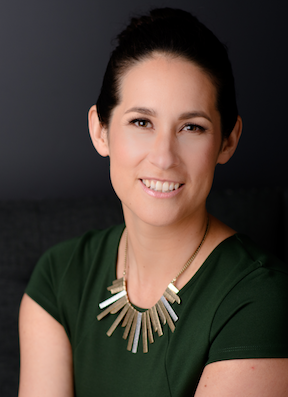
Dr. Tehama Lopez Bunyasi
Dr. Tehama Lopez Bunyasi
Assistant Professor of Conflict Analysis and Resolution
From her 2019 book Stay Woke: A People's Guide to Making All Black Lives Matter (NYU Press), co-authored with Dr. Candis Watts Smith (Penn State University):
"Let's imagine a street lined with high-rise buildings. One of them is burning. What do you do? All of the buildings matter, but the one on fire matters most at that moment. The thing is, if you don’t put out the fire in the burning building, you risk all of the surrounding buildings burning down as well. This is the message of the Black Lives Matter movement: Black lives are under attack, and we all ought to galvanize a sense of urgency to address the direct, structural, and cultural violence that Black people face. It’s not only the right thing to do, but the fate of the entire neighborhood depends on it. We, as a society, cannot say we are all free and equal until those who are at the bottom of various domains of our society — political, economic, social — are also free and equal."
Resources from Dr. Tehama Lopez Bunyasi
Articles
Radical Teacher — Structural Racism and the Will to Act (by Tehama Lopez Bunyasi, Vol. 110 [2018])
LA Review of Books — Staying Woke Is Patriotic: An Excerpt from “Stay Woke: A People’s Guide to Making All Black Lives Matter” (September 24, 2019)
YES! Magazine — The Language of Antiracism: Excerpted from Stay Woke: A People’s Guide to Making All Black Lives Matter by Candis Watts Smith and Tehama Lopez Bunyasi (February 19, 2020)
Videos
New America — "Politics and Race Relations" feat. Dr. Lopez Bunyasi discussing research from her upcoming book on white people's role in dismantling white supremacy (February 20, 2018)
Book Culture Bookstore — "Role of University Presses in American Society" feat. Dr. Lopez Bunyasi and Dr. Watts Smith discussing Stay Woke (November 7, 2019)
Rising Up with Sonali — A discussion on Stay Woke feat. Dr. Lopez Bunyasi (September 12, 2019)
Podcasts
The Second City Works — A discussion with Dr. Lopez Bunyasi and Dr. Watts Smith about Stay Woke and improv (November 12, 2019)
The Freedom Plow (A Podcast By NCOBPS) — "Five Years After the Police Killing of Tamir Rice" feat. Dr. Lopez Bunyasi and Joseph Worthy, Ohio Director of Youth Leadership and Organizing at the Children’s Defense Fund (November 2019)
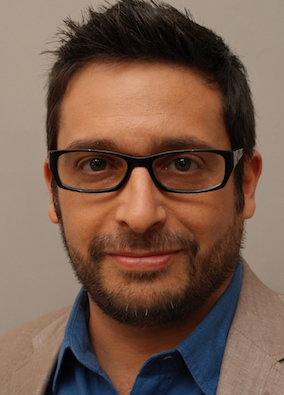
Dr. Arthur Romano
Dr. Arthur Romano
Assistant Professor of Conflict Analysis and Resolution
From "Truth Telling from the Margins: Exploring Black-led Responses to Police Violence and Systemic Humiliation," a book chapter by Dr. Arthur Romano and Dr. David Ragland in Systemic Humiliation in America: Finding Dignity within Systems of Degradation (2018, Palgrave Macmillan, edited by Carter School professor Daniel Rothbart):
"[Following the murder of Michael Brown in Ferguson, Missouri, t]he broader statement 'Black Lives Matter' came to represent a moral claim of human dignity and full personhood in opposition to systemic practices of indignity and humiliation. 'Black Lives Matter' is a declaration drawing attention to the continued chasm between ‘guaranteed’ rights and the lived experiences of Black people in the US today. Further, this statement expresses an awakened consciousness and a sense of agency in seeking to redress centuries of systemic violence."
Resources from Dr. Arthur Romano
The Truth Telling Project
According to its website, The Truth Telling Project "implements and sustains grassroot, community-centered truth-telling processes to amplify our voices about structural violence." One way it does so is by recording the testimonies of those who have been impacted by police violence and structural racism, including those who survived police violence or who have lost their relatives to police violence.
Listen to the testimonies of people that have experiences of police violence
Learn more about The Truth Telling Project:
- Facebook page: @thetruthtellingproject
- Book chapter by Dr. David Ragland and Dr. Romano: "Truth Telling From the Margins: Exploring Black-led Responses to Police Violence and Systemic Humiliation"
Articles
Tikkun Daily — "Why Protest? And What’s Next: Truth-Telling and Reconciliation for Ferguson and Beyond" (by David Ragland and Arthur Romano, December 16, 2014)
The Conversation — "Police should put away the military gear and build connections with young people" (by Arthur Romano, August 12, 2015)
Peacelearner.org
As an online, open-access resource on peace learning and nonviolence, Peacelearner.org gives educators resources to incorporate principles of peacebuilding and nonviolence into their classrooms.
Dr. Romano has incorporated Peacelearner.org resources into his pedagogy, and has engaged his students at the Carter School in developing resources for the online repository. In particular, he recommends the following two resources developed by Carter School students:
- March 14, 2016 — "Privilege Walk Lesson Plan" (developed by Carter School master's alumni Rebecca Layne and Ryan Chiu)
- May 2, 2016 — "College Campus Identities and Policies Role Playing Scenario Skill Share"
Police Training, Reform, and Advancement
Dr. Romano is working to advance conflict-de-escalation training with law enforcement and develop a reflective practice and conflict coaching model with law enforcement that involves a broad array of stakeholders.
His work in this area has included contributions to the Connecticut Task Force on Police Training Report in 2017.
To connect with Dr. Romano on his work, email him at aromano7@gmu.edu.
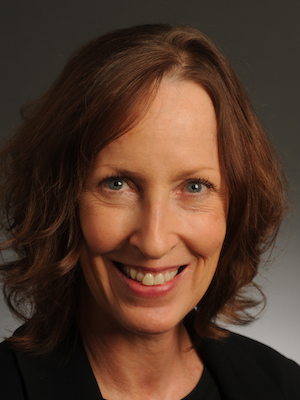
Dr. Patricia Maulden
Dr. Patricia Maulden
Associate Professor of Conflict Resolution;
Student Engagement Coordinator
Dr. Maulden's statement on white supremacy and anti-Black racism:
"White supremacy and systemic racism are inherently violent—directly, structurally, and culturally—by design. They were devised and supported to limit rights, access, and opportunity to Black citizens in particular, but the frames can expand to include other non-white groups as well. Federal, state, and local laws, economic policies, social policies, mass convictions, mass incarceration, and storytelling give the violence the gloss of legitimacy. The fields of peace and conflict resolution challenge that legitimacy, break down old patterns, trace them to their source, shine a bright light thereon, and tear them apart analytically, practically, and ethically, while at the same time preparing the ground for equity, individual dignity, reparative practices, and hope."
Resources from Dr. Patricia Maulden
Reading for Racial justice
This list from the University of Minnesota provides a selection of 34 books from the University of Minnesota Press that address racial justice.
Articles
Studio Nilima — "Former Incarcerated Persons and Disenfranchisement: Civil Death in the United States" (by Patricia Maulden, Vol. III, Issue 1 [January 2020], p. 75–90)
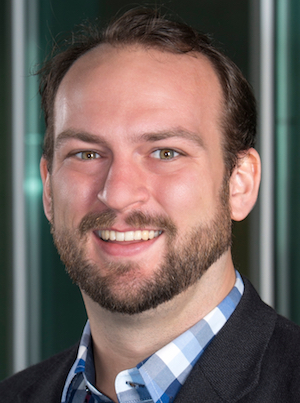
Dr. Douglas Irvin-Erickson
Dr. Douglas Irvin-Erickson
Assistant Professor;
Director of the Genocide Prevention Program
Dr. Irvin-Erickson's statement on white supremacy and anti-Black racism:
"What does peace and conflict resolution tell us about white supremacy and systematic racism? It teaches us that peace often requires conflict, and that no one should be forced to reconcile with a system of injustice."
Training Opportunity
Dr. Irvin-Erickson provides bystander training, tolerance education, and anti-racism training with local organizations and the U.S. Holocaust Memorial Museum. If you would like to learn more, you can reach him at dirviner@gmu.edu.
Resources from Dr. Douglas Irvin-Erickson
Books for Practitioners
For the Sake of Peace: African Perspectives on Racism, Justice, and Peace in America
- Edited by Dr. Charles L. Chavis, Jr. (Carter School professor) and Dr. Sixte Vigny Nimuraba (Carter School PhD alum)
- Published in June 2020 by Rowman & Littlefield
- Features chapters from the following Carter School community members: Siyabulela Mandela (former Visiting Scholar), Ajanet Rountree (PhD student), Oluwagbemiga Dasylva (PhD candidate), and Sandra Tombe (PhD candidate)
- Edited by Emily Sample (Carter School PhD candidate) and Dr. Irvin-Erickson
- Forthcoming in August 2020 from Rowman & Littlefield
- Features chapters from the following Carter School community members: Dr. Charles L. Chavis, Jr. (professor), Dr. Patricia Maulden (professor), Shelly Clay-Robison (PhD candidate), Dr. Bridget Moix (PhD alum), and Dr. Sarah Federman (PhD alum)
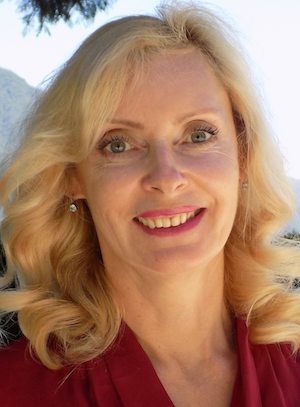
Dr. Karina Korostelina
Dr. Karina Korostelina
Professor of Conflict Analysis and Resolution
In "Insults as Tools of Systemic Humiliation," Dr. Korostelina examines the desegregation process in Little Rock, Arkansas, as a case study of different levels of insult used to divide the white community in service of maintaining a rigid social hierarchy that oppressed the African American community:
"Although the elites privately supported arguments made by segregationists, publicly they maintained a moderate stance in local and statewide politics. Elites used projection insults to blame working-class whites for violence, negatively characterizing them as 'extremist, rural, lunatic fringe, low-breeding and rednecks.' Thus, the white elite created a favorable comparison, presenting themselves as supporters of desegregation and blaming working-class whites for social discord and intolerance. Therefore, the white elite created both projection and identity insults for working-class whites. First, the promotion of desegregation policies only in poor white areas stripped working-class whites of their positive identity that was based on a privileged position in comparison with African Americans. Second, the accusation of working-class whites as violent created for them a negative identity of intolerant and cruel people in comparison with the white elite. Finally, the aggressive actions of white working class people that emphasized differences between them and African Americans and showed refusal to change racial boundaries created multiple divergence insults and systemic humiliation of African American communities."
Resources from Dr. Karina Korostelina
Book Chapter
"Insults as Tools of Systemic Humiliation" (by Karina Korostelina, 2018) — In Systemic Humiliation in America, edited by Daniel Rothbart (Carter School professor) and published by Palgrave Macmillan
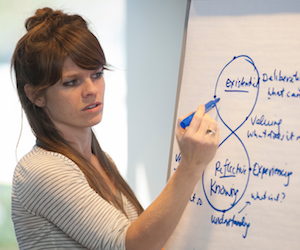
Dr. Megan Price discusses Insight approaches to conflict.
Dr. Megan Price
Adjunct Faculty Member;
Carter School PhD Alum
Dr. Price's statement on white supremacy and anti-Black racism:
"I work with the Insight approach to conflict resolution, and from my perch, our field can tell us that curiosity and discovery are our most important tools.
In the face of harmful ideologies like white supremacy and the structural violence of systemic racism, the Insight approach compels us to get curious. In order to cut a path forward and not entrench division, we need to take the courageous step of wondering. We need to confront the hate of white supremacy and ask, 'What are the threats patterning this ideology? Beyond what is most evident, what is this ideology intended to protect? How is claiming superiority and promoting violence going to help?' When we can elicit and discover what is at the root of white supremacy, on the terms of those who hold that ideology dear, we can spark insights. We can learn. We work with those discoveries to open possibilities and make change.
When it comes to structural racism, which is distinct, of course, and more dangerous than the ideology of white supremacy, because it is hidden and it is habit, we also need to be curious. If we see a system that is repeatedly harming people, like we're seeing the U.S. criminal justice system repeatedly harming Black people, Brown people, immigrants, and the poor, we need to stop, be outraged, and then we need to wonder. First, we need to wonder, 'What are the systems designed to achieve?' If they are designed to harm, they need to be dismantled. If they are designed to achieve another purpose, then we need to identify that purpose and discover where the breakdowns are. Because breakdowns distort a system's purpose and produce damaging habits that sustain harm. When we can pinpoint the breakdowns, we can take targeted, sustainable. and transformative action."
Resources from Dr. Megan Price
Articles
The Conversation — "Could ‘Insight Policing’ have saved Sandra Bland, Freddie Gray and others?" (by Megan Price, July 22, 2015)
To be read in conversation with:
- Huffpost — "Living While Black (LWB): My Personal Struggle with the Unending Terrorism Of Police Violence In America" (by Imani Michelle Scott, June 24, 2017)
- Journal of Personality and Social Psychology — "Seeing Black: Race, Crime, and Visual Processing" (by Jennifer L. Eberhardt, Phillip Atiba Goff, Valerie J. Purdie, and Paul G. Davies, Vol. 87, No. 6 [2004])
Books
Crimes against Humanity in the Land of the Free: Can a Truth and Reconciliaton Process Heal Racial Conflict in America? — Edited by Imani Michelle Scott (Praeger, 2014)
- Chapter Eight — "Reconfiguring Traditional Prescriptive Approaches to Truth and Reconciliation Processes: Adapting the Elicitive-Centered Insight Approach for the United States" by Megan Price
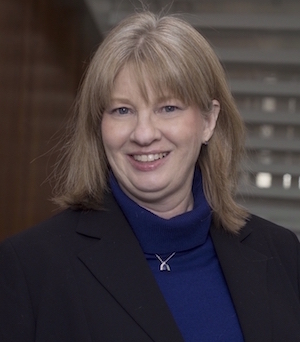
Dr. Pamela Struss
Dr. Pamela Struss
Adjunct Faculty Member;
Carter School MS Alum
Dr. Struss's statement on white supremacy and anti-Black racism:
"Society’s structure is woven with threads of racism in varying hues of color and intensity as perpetrated by white supremacy. The tipping point is the pandemic health crisis, though there are many additional explosive examples of racism that no one can deny: the deaths of numerous souls whose only 'crime' was not being white; children in cages; inequitable sentencing, punishments, and early release decisions at all levels of courts; white nationalists parading around in law enforcement uniforms, dishonoring the officers who truly are committed to being public servants; and disproportionate economic hardship being borne by those at the lower levels of socioeconomic status.
However, there is a silver lining in the awareness and rejection of racism evidenced by the recent civil actions taken by numerous grassroots groups. There is hope demonstrated by signs of success resulting from peaceful civil action: visible structures such as statutes and names on buildings are being removed; sustained protesting that is continuing throughout the U.S.; and all forms of media highlighting white supremacy and racism. A ground swell of practitioners with diverse faces are turning our intense focus to these wicked problems and are supporting a paradigm shift in civil society to bring about a fair and inclusive community. Becoming 'woke' can be a painful process, but freedom for all is the reward, and it’s well worth it."
Resources from Dr. Pamela Struss
The Resilient Women's Dialogue of the Northern Neck
The Resilient Women's Dialogue of the Northern Neck, co-founded and co-facilitated by Dr. Struss and Dr. Nannette Smith, meets bi-monthly to provide a space for women who might not otherwise have the opportunity to be in dialogue with each other. The meetings allow them to "share their common concern for their families, children and grandchildren" and build "connections of understanding and support for each other," according to Dr. Struss.
Among the topics discussed at the dialogues are the legacy of slavery and present-day manifestations of white supremacy in the Northern Neck. Located at the confluence of the Potomac River and the Chesapeake Bay, the Northern Neck was the site of many plantations where enslaved people were forced into labor, and the descendants of both the enslaved people and the people who enslaved them live in the area today.
To learn how to join the dialogue group, visit https://www.facebook.com/groups/1413072615490227.
Interracial Conversations of the Northern Neck (IRC-NNK)
According to its website, Interracial Conversations of the Northern Neck is an interfaith dialogue group founded for Northern Neck community members from various cultural and ethnic backgrounds who are dedicated to "working together to understand the racial and culture dynamics of our community through honest and informed communication and purposeful actions to promote equality and opportunity for all residents."
To learn how to become involved and check out the IRC-NNK's resources, visit https://interracialconversationsnnk.com.
Mediation
Dr. Struss is the President Elect 2020 of the Virginia Mediation Network, a statewide association for practitioners of alternative dispute resolution and conflict resolution. She is also a Supreme Court Certified Mediator for the General and Juvenile and Domestic Relations District Courts.
To learn more about her mediation work, you can reach her at pstruss@gmu.edu.
Reading and Resource Guides
Simmons University — Anti-Racism Libary Guide
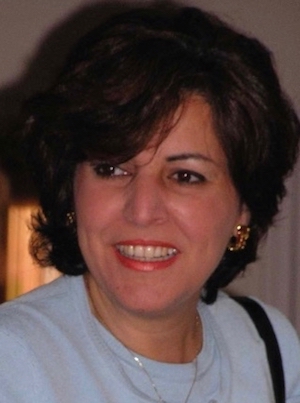
Dr. Alma Abdul Hadi Jadallah
Dr. Alma Abdul Hadi Jadallah
Adjunct Faculty Member;
Carter School PhD Alum
Dr. Jadallah's statement on white supremacy and anti-Black racism:
"The field of peace and conflict resolution brings much attention to cultural as well as structural violence when analyzing and advising on a problem like white supremacy and systemic racism. Though we condemn the actions of white supremacists, we would also want to engage them in ways that would allow them to rethink their disrespectful attitudes and exclusionary behaviors towards others.
At the Carter School, we investigate the underlying causes of the problem and work on identifying peaceful ways to address it. The tools that we teach our students allow them to analyze the problem by mapping the actors and their grievances, and the tactics that they use to achieve their goals. More importantly, we design processes that promote respectful dialogue that leads to sustainable solutions based on equal rights and respect for all those involved. We believe that eventually this leads to shifts in attitudes and behaviors, and consequently to institutional reform that adopts inclusion based on respect for the rights of all."
Resources from Dr. Alma Abdul Hadi Jadallah
Dr. Jadallah recommends the following books on racism in America, which she has incorporated into her own syllabi, including for CONF 658 (Diversity and Difference in Conflict Resolution):
- The New Jim Crow: Mass Incarceration in the Age of Colorblindness — Michelle Alexander (The New Press, 2010)
- We Should All Be Feminists — Chimamanda Ngozi Adichie (Anchor Books, 2015)
- The Train to Crystal City: FDR's Secret Prisoner Exchange Program and America's Only Family Internment Camp During World War II — Jan Jarboe Russell (Scribner Book Company, 2016)
- American Hate: Survivors Speak Out — Edited by Arjun Singh Sethi (The New Press, 2018)
- The Lies That Bind: Rethinking Identity — Kwame Anthony Appiah (Liveright Publishing Corporation, 2019)
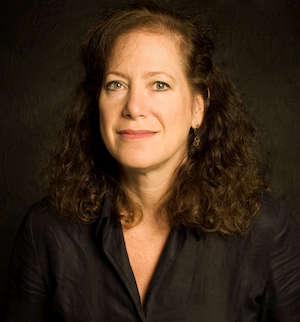
Dr. Suzanne de Janasz
Dr. Suzanne de Janasz
Professor of Management and Conflict Analysis & Resolution
Dr. de Janasz's statement on white supremacy and anti-Black racism:
"I have been processing what has been happening but am struggling to find my voice and comment on the painful events we have been witnessing, possibly due to my fear of getting it wrong. I consider myself an ally, but my perspective is limited by the privilege I have, and I know I’m not doing nearly enough. I’ve stepped up my efforts to educate myself about what we're seeing—as well as what we're not seeing (for example, disturbing videos of what appears to be police and others transforming peaceful protests into violent riots)—by reading (including my colleague Tehama Lopez Bunyasi's book with Candis Watts Smith, Stay Woke ), watching videos that have helped me re-frame (including from fellow professor Tina Opie and comedian Trevor Noah), and watching Ava DuVernay’s enlightening documentary 13th (currently streaming for free on Netflix)."
Resources from Dr. Suzanne de Janasz
Videos and Films
Ava DuVernay (dir.) — 13th (2016)
Trevor Noah — Video on police brutality and anti-Black racism (May 29, 2020)
Grey's Anatomy — Clip that Dr. de Janasz uses in her classroom to address how interpersonal and systemic anti-Black racism are intertwined.
Books and Resource Lists
Tehama Lopez Bunyasi and Candis Watts Smith — Stay Woke: A People's Guide to Making All Black Lives Matter (NYU Press, 2019)
Google Doc — Community-curated anti-racism resource and action list (updated in June 2020)
Organizations
American Civil Liberties Union — https://www.aclu.org/
NAACP Legal Defense Fund — https://www.naacpldf.org/
National Lawyers Guild — https://www.nlg.org/
Campaign Zero — https://www.joincampaignzero.org/#vision
Unicorn Riot — https://unicornriot.ninja/
Carter School News stories about equity, inclusion, and social justice
July 16, 2020
Diversity, Equity, and Inclusion Committee commits to placing anti-racism at the core of its work
April 24, 2020
S-CAR assistant professor encourages us to "Stay Woke"
April 15, 2020
For Mason alum, COVID-19 drives home the link between public health and peacebuilding
December 20, 2019
30th annual Lynch Lecture explores the intersection of human rights and restorative justice
May 15, 2019
First-of-its-kind course explores how to create inclusive communities at S-CAR
April 15, 2019
Dr. Charles Chavis will link the past with the present at S-CAR
March 15, 2019
The blackface scandal in Virginia
November 16, 2018
Fall semester at S-CAR brings themes of racial and social justice to the fore
October 25, 2018
At annual Lynch Lecture, Georgetown Law professor challenges a system of racial injustice
May 10, 2018
Nelson Mandela's grandson working toward PhD at Mason's School for Conflict Analysis and Resolution
Carter School concentrations and coursework on equity, inclusion, and social justice
While issues of racism and white supremacy are interwoven into all facets of society—and thus, all facets of peacebuilding and conflict resolution—our school offers a variety of concentrations and coursework that focus explicitly on issues of equity, inclusion, and social justice.
As you take a look at the below courses and concentrations, it is important to note that the work of decolonizing knowledge is ongoing in the field of peace and conflict studies.
Undergraduate
Concentrations (BA and BS in Conflict Analysis and Resolution):
- Building Peace in Divided Societies
- Political and Social Action
- Justice and Reconciliation
Coursework:
- CONF 302: Culture, Identity, and Conflict
- CONF 325: Dialogue and Difference
- CONF 330: Community, Group, and Organizational Conflict
- CONF 335: Justice and Reconciliation
- CONF 392: Youth and Conflict
- CONF 394: Human Rights and Inequality
- CONF 435: Building Peace in Divided Societies
Graduate
Concentrations (MS in Conflict Analysis and Resolution):
- Social Justice Advocacy and Activism
- Inclusive Conflict Engagement
Coursework:
- CONF 631: Mediation in Diverse Settings
- CONF 658: Diversity and Difference in Conflict Analysis and Resolution
- CONF 670: Conflict Sensistive and Inclusive Peacebuilding
- CONF 706: Ethics and Conflict
- CONF 708: Identity and Confict
- CONF 721: Conflict and Race
- CONF 722: Conflict and Religion
- CONF 723: Conflict and Gender
- CONF 730: Structural Sources of Conflict
- CONF 733: Law and Justice from a Conflict Perspective
- CONF 759: Building Peace in Divided Societies
- CONF 803: Structural Theories
- CONF 804: Alternate Theoretical Foundations
The reporting for and formatting of this piece was carried out by Audrey Williams (Carter School Storyteller / News Editor).
